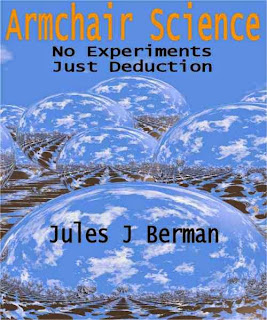The total number of included cancer-related terms exceeds 146,000.
In addition to (and following within the file) the list of classified neoplasm terms is a list of unclassified cancer related terms (all identified by the same identifier, "C0000000").
This list of unclassified terms consists of general cancer terms that do not specify any particular neoplasm; overly specific terms that provide so-call pre-coordinated annotations related to terms contained elsewere in the Classification; and valid terms that have not been added (yet) to the list of classified neoplasm terms.
Examples of non-specific cancer-related terms are:
-borderline tumor
-mucinous tumor
-blast crisis
-preinvasive carcinoma
-dysplasia
Examples of overly specific terms are:
-squamous carcinoma of the nasal vestibule
-gastric non-hodgkin lymphoma of mucosa-associated lymphoid tissue
-primary primitive neuroectodermal tumor of the kidney
The terms that are currently unclassified and are awaiting inclusion in the classified section were added by putting curated candidate terms in an external file and parsing these candidate terms with a Perl script that checks to see if they are already in the Classification and that automatically assigns them a "C0000000" code if they are new. The Perl script, addterm.pl, is one of many "helper" scripts that the curator uses to facilitate growth of the classification. It is shown here:
#!/usr/local/bin/perl
#addterm.pl
#
#This Perl script was created by Jules J. Berman and is entered
#into the Public Domain
#
#The software is provided "as is", without warranty of any kind,
#express or implied, including but not limited to the warranties
#of merchantability, fitness for a particular purpose and
#noninfringement. in no event shall the authors or copyright
#holders be liable for any claim, damages or other liability,
#whether in an action of contract, tort or otherwise, arising
#from, out of or in connection with the software or the use or
#other dealings in the software.
#
open (TEXT,"neocl.xml")||die"Cannot";
my $line = " ";
my %doubhash;
while ($line ne "")
{
$line = <TEXT>;
next if ($line !~ /C[0-9]{7}/);
$line =~ /\"\> ?(.+) ?\<\//;
$phrase = $1;
$doubhash{$phrase}="";
}
close TEXT;
open (TEXT,"newneocl.txt")||die"Cannot";
open (OUT,">new.out")||die"Cannot";
my $key = " ";
while ($key ne "")
{
$key = <TEXT>;
$key =~ s/\n//;
next if ($key eq "");
if (exists $doubhash{$key})
{
print "$key already exists\n";
}
else
{
print OUT "\
print OUT "$key\<\/name\>\n";
}
}
exit;
-Jules J. Berman
Science is not a collection of facts. Science is what facts teach us; what we can learn about our universe, and ourselves, by deductive thinking. From observations of the night sky, made without the aid of telescopes, we can deduce that the universe is expanding, that the universe is not infinitely old, and why black holes exist. Without resorting to experimentation or mathematical analysis, we can deduce that gravity is a curvature in space-time, that the particles that compose light have no mass, that there is a theoretical limit to the number of different elements in the universe, and that the earth is billions of years old. Likewise, simple observations on animals tell us much about the migration of continents, the evolutionary relationships among classes of animals, why the nuclei of cells contain our genetic material, why certain animals are long-lived, why the gestation period of humans is 9 months, and why some diseases are rare and other diseases are common. In “Armchair Science”, the reader is confronted with 129 scientific mysteries, in cosmology, particle physics, chemistry, biology, and medicine. Beginning with simple observations, step-by-step analyses guide the reader toward solutions that are sometimes startling, and always entertaining. “Armchair Science” is written for general readers who are curious about science, and who want to sharpen their deductive skills.
